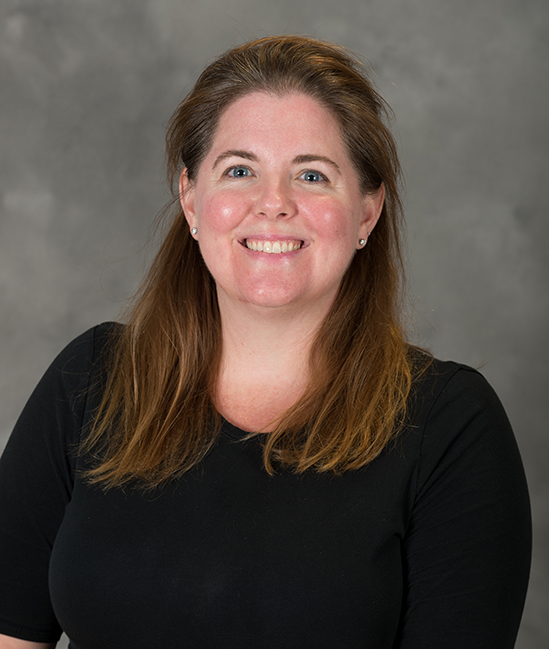
Dr. Tara Bell
Buies Creek, NC 27506
Biography
By popular demand from the student body, Campbell University’s College of Pharmacy & Health Sciences hired its first full-time pediatrics pharmacy faculty member in July 2008. “My position started because of the student body,” explains Tara Bell, PharmD. “I think highly of the pharmacy students at Campbell because they are interested in seeking more opportunities for learning that are not taught in their classes.”
Bell, a pediatric clinical pharmacist at Duke Children’s Hospital & Health Center, was contacted in 2001 by a Campbell pharmacy student who wanted to complete a pediatric rotation under her direction. Since then, she has trained four or five students on rotation each year and has been asked to teach as a guest lecturer for several therapeutics classes; but the students wanted more. When Bell started receiving numerous comments from discouraged students who were not able to complete her rotation because of limited spots, she approached the College about the students’ remarks and her full-time position was soon created.
As an assistant professor of pharmacy practice, Bell now has 20-24 available slots each year for students to complete her pediatric rotation. In addition, she teaches the first pediatric focused P-3 elective offered at the College.
Following graduation from the PharmD program at the University of Michigan in 1999, Bell completed a general practice residency at Duke and then went on to her second residency specializing in pediatrics at the Medical University of South Carolina. After completing her education, Bell looked for a job where she could practice in pediatrics as well as teach.
“It’s always been a goal of mine to work in academia,” Bell says. “It is really rewarding to hear a student say ‘wow, I really learned a lot’ which in turn will be used by the student to help take care of a patient down the road.”
Bell strongly feels that students need to be educated about where to look up information on pediatrics or how to approach answering a question about that because no matter what area of pharmacy they go into, someone will ask them a question about a pediatric patient.
During her rotations, Bell teaches students a team approach to taking care of patients. “Students are able to see the physician evaluate the patient for a diagnosis and then ask me for input about his or her medication regimen. In addition, we work with a dietician, a social worker and a nurse, so students observe the thought process of these roles.”
Although it can be sad at times working on a pediatric unit, “the good things we do outweigh the bad,” Bell explains. “Students have different reactions to this patient population, some will actually go in and color with them and play games with them and they do get attached. Others are amazed at how many medications the patients are on, while others are surprised at how much a physician can rely on a pharmacist for his or her input.” No matter what experience is taken away from the rotation, the bottom line is more Campbell pharmacists are being trained on how to take care of their future pediatric patients, all because they asked for more.